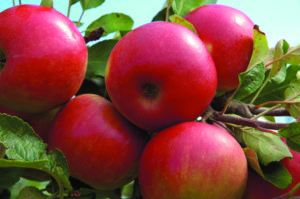
 In honoring ourselves and the Earth we need to remember that ALL of our food comes from the earth, either directly or indirectly. Not just vegetables and fruits but also protein from meat, milk, eggs, honey, and even the nutrients from the sea. The Earth “giveth.”
In honoring ourselves and the Earth we need to remember that ALL of our food comes from the earth, either directly or indirectly. Not just vegetables and fruits but also protein from meat, milk, eggs, honey, and even the nutrients from the sea. The Earth “giveth.”
That is unless you are eating industrial food, chemically produced, manufactured in a lab, with preservatives, colorings, and other chemical ingredients. This would be the foodstuffs that comes in bags or boxes, readily available in every “regular” grocery store, but not always the best choice for nutrition.
The history of “lab-created, manufactured” food really boomed in popularity after WW II when chemicals were being touted as the “savior” of humankind! Americans’ taste was altered by the newly manufactured foods, which contained high amounts of salt, sugar, spices, and chemicals. This was in order to extend the shelf life of foods for an increasingly mobile society. These were the foods that kept well and as life in America sped up, and continues to do so, most learned to like those salty, sugary, spicy, chemical tastes. Just as people today “like” things on the Internet, a totally new introduction into global life.
With the increased speed of American life came also fast food eateries, or rather the ubiquitous drive-through. Never before had we as a nation been able to drive up to a window to procure food. And that’s a long way from hunting and gathering. Fast changes in a relatively short amount of time. To add to the changes, the media, and even doctors were trying hard to convince us that this was the way to go. And that butter, eggs, honey, and meat were bad for us. But the faster food came into our mouths, the more simple carbs we consumed. And as a nation we grew to be obese, and that trend continues today, much to the detriment of our health.
In the 1960s and 70s there was a fashionable trend towards vegetarianism, but with adequate protein, mostly in the form of beans. Beans were popular because of their high protein content and low cost. But packaged vegan foods tend to be high in salt and/or sugar. The consumption of sugar has risen to an all-time high. And what can you expect from mouths trained to want those increased tastes? The tastes of industrial food. Yes, they do eat desserts in countries like France, Italy, Spain, and others, but you won’t find those countries serving desserts as sickly sweet as those served in the United States. Though that is changing world-wide as well.
Even bread in other countries is different from what we have in the US, which is why those who are gluten sensitive can eat bread in foreign countries without the kinds of reactions they get at home. Most of the bread made in our country is made quickly without the benefit of slower or multiple risings. This is done to increase profit margins. Oh gee, money is the goal again! The faster method of producing bread may contribute to gluten sensitivities. The jury is still out. We need more studies and more time to figure this all out. In the meantime, if you feel better not eating gluten then by all means don’t eat it if you can avoid it.
When it comes to organic versus conventional food there is often no comparison in terms of flavor. But not always. There are also industrial organic farms producing “fresh” organic, but anemic looking, produce on farms comprising thousands of acres. Some stores have an organic section of produce that in fact looks like it’s been sitting on the shelf for six weeks or more. In that case you may choose the locally-grown sustainable produce as an alternative. The choice is yours.
Industrially raised chicken is sometimes labeled “organic,” but in fact the chickens are raised in defunct Tyson or other chicken housing, or from far-away countries, and given only an hour per day in fresh air. That’s not the way to raise chickens, whether you are consuming them or not, as this does not give a quality organic product. Use discretion as there is a great deal of non-compliance in the organic and sustainable practices.
Many Americans are cash-rich and time-poor, hence the desire for fast food places and pre-prepared foods. Yet many are cash-poor and still also time-poor. Remember that cooking some beans in a crock-pot doesn’t take much work or time on your part. And farm markets are just plain fun.
Many who are without monetary constraints still shop by price, while owning expensive vehicles and going on extravagant vacations and eating out more than two times a week. Those are the priorities of most Americans. Perhaps food itself, and its preparation, needs to be more of a priority if we want to live healthy and long lives.
We get enough chemicals in our lives from so many sources we have little or no control over, such as air, water, and some food. Let’s make our food a higher priority and refuse to buy so much industrial food. Choose wisely, cook a little more, eat slowly, and calmly; and buy the best you can afford. That’s the secret to living well.
No Comments
Leave a comment Cancel